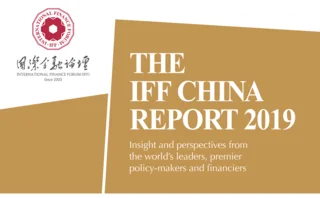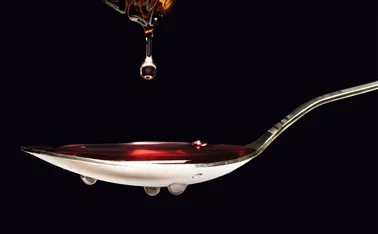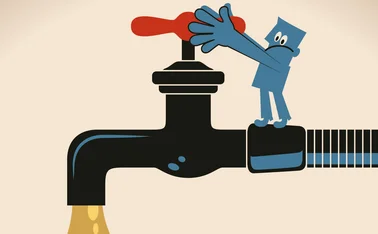
The EU and China – A frank-talking friendship


I was Portugal’s foreign minister between 1992 and 1995 – a crucial period of negotiation in Macao’s transfer of sovereignty to China – during which time I became more deeply involved in relations with China. I have been visiting China since the 1980s, and have seen its remarkable development and modernisation. As prime minister of Portugal and president of the European Commission (EC), I took part in an expansion in dialogue and co-operation between the European Union and China.
The EU-China 2020 Strategic Agenda for Co-operation was adopted in 2013, during my time at the EC. The EU and China now participate in structured co-operation. The EU has had diplomatic relations with China since 1975, and these relations now cover more than 70 high- and senior-level sectoral dialogues. This long-standing co-operation between the EU and China is a wide-ranging, strategic dialogue covering issues of great importance.

July 2018 marked the 20th EU-China summit, meetings attended at the highest level on both sides – usually the premier of China and the presidents of the EC and European Council.
I was involved in the talks not only with my colleagues, such as the premier of China, Li Keqiang, but also with former president Hu Jintao and President Xi Jinping, who paid his first-ever official visit to the EU institutions in Brussels as president in 2014.
Economic relations are extremely important: the EU is China’s largest trading partner, and China is the EU’s second largest after the US. The trade in goods between the EU and China exceeds €1.5 billion a day, and will soon approach €2 billion. It is valuable not just because of its volume but because of its scope: the trade covers multiple areas and the goods traded are already part of integrated supply chains.
Unfortunately, some still think in the old terms of trade: one country produces something and sells it to another. Today, what happens often is that one country exports some components to another country that are later returned.
These supply chains between the EU and China are becoming increasingly integrated. Official EU figures reveal that in 2017 the EU exported €198 billion in goods to China, and has imported €375 billion in goods from China. There is therefore a surplus on China’s side; but in services there was a small surplus on the EU’s side in 2016: it exported €38 billion in services and imported €30 billion worth from China.
Unlocking investment opportunities
Clearly, this is an important and substantive economic and trade relationship. Today, the EU is negotiating with China a comprehensive agreement on investment. As president of the EC when this matter was discussed, we took the decision to launch negotiations in 2013. We had initially been discussing the possibility of a free-trade agreement (FTA) with China. However, there was no consensus for one within the EU. The difficult issues of the differing structures of our economies, as well as the recognition of the so-called market economy status of China, were discussed continually by the EU and the leadership of China. It was eventually decided that, instead of opting immediately for an FTA, we should first work for a comprehensive agreement on investment, because this agreement would create a level playing field for business, increased market access and liberalisation, and therefore new opportunities for both sides.
From a European perspective, the idea was also to support China’s economic reform. Last year, China commemorated 40 years of its policy of ‘opening-up’ and reform, of which the EU has been very supportive.
One issue of great importance from a European perspective is the access of foreign direct investment. A concrete example can be found in Portugal, where the most important electricity company is now controlled by a Chinese company, the most important electrical grid is controlled by another Chinese company and the most important private bank is controlled by a Chinese group, as are the most important insurance company and one of the country’s leading private hospitals.
It is evident Portugal is extremely open to foreign economic investment. That electricity company is the most important utility in Portugal, and when the Portuguese government opened a tender, it took a bid each from a Chinese, a Brazilian and a German company. From those three bids, the Chinese offered the best price and won the tender. Would it be possible the other way around – for a European company to take control of a Chinese utility? Frankly, no. Even today, as announcements are made about reinforcing opening-up, the reality is this is not yet possible in the Chinese financial sector. So authorities in China and the Chinese people must make a very important decision: are they ready to accept that level playing field in terms of direct investment? If so, China can remove an important obstacle between trade among different countries and defuse some of the arguments made by those who want to create tension: that China does not operate on a level playing field, as well as arguments such as those concerning industrial policy, intellectual property rights and others.
It is in China’s interests to grant more direct access to investment if we believe our economies should be more integrated. That integration will come about not only through the traditional mechanisms of trade or tariffs and quotas, but through direct investment and the rule of law to protect investors on both sides.
New consensus in Europe
The EU does not wish to simply tell others how to do this, but to share its experience. The EU – originally the European Community – was created after World War II to apply economic integration and eliminate the possibility of another war between European nations. Since then, in western Europe there has been no war.
In Europe today, a war between EU member states is inconceivable. These are centuries-old, long-standing, independent sovereign nations that decided to create this mechanism of integration, not only with the common market, but also by abolishing all types of friction – quotas and tariffs – in trade between members. A small company from Portugal can sell to Germany without any kind of obstacle and vice versa, aided by the customs union and the integrated supranational measures for the countries of Europe, including a single currency in use by 19 member states. This is the most advanced case ever of integration in regional terms.
There are similar manifestations of integration elsewhere – such as the Association of Southeast Asian Nations – but, in terms of supranationalism, there have never been such high levels of integration, commercial investment and monetary policy, concerned with redistribution policies that allocate large sums to the poorest regions, as in the EU.
I do not suggest the same model should be applied worldwide, but it is important to recognise that European countries have the experience of removing barriers and setting a level playing field to encourage common investment and to facilitate trade.
Unstoppable integration
The EU has proved its resilience: between 2004 and 2014, membership of the EU almost doubled – from 15 states to 28. Most of these new members had been part of the Eastern bloc under the control of the Soviet Union: Poland, Hungary, Czech Republic, Slovakia, Romania and Bulgaria. The three Baltic states – Latvia, Lithuania and Estonia – had been part of the Soviet Union itself and countries that had been part of the former Yugoslavia, such as Slovenia and Croatia, also joined.
At the time of writing, the UK is set to secede from the EU this year, reducing the number of member states to 27, but other countries want to join the EU. Even during the most acute financial crisis since the beginning of European integration in the 1950s, it was possible for EU membership to increase from 15 to 28 members and establish even more mechanisms for integration. For instance, it is not yet complete, but today we have a banking union with a single supervisory mechanism for the banks created precisely to respond to the crisis. Sometimes it takes these crises for the EU to increase its integration because only under pressure are national leaders ready to make compromises and to advance with integration.
China understood strategically that the euro would most likely remain an important currency, and it made sense to indicate to the world the importance of the EU
I remember the Group of 20 summit at the time of a possible ‘Grexit’ – when many of our partners thought Greece’s exit from the EU was unavoidable, and that the euro would collapse. Nothing of the sort happened. On the contrary, new instruments were introduced, such as the European Stability Mechanism, a kind of European monetary fund that is still developing and being reinforced. We kept Greece in the eurozone, and today the euro is the second most traded global currency thanks to the resilience of the EU and the currency itself.
During the Greek crisis, China supported the EU and the euro when many market participants expressed deep mistrust in it and were selling its bonds. China understood strategically that the euro would most likely remain an important currency, and it made sense to indicate to the world the importance of the EU.
Of course, not everything is perfect between China and the EU. Problems existed and continue to exist in terms of trade, but we treat these problems in a discrete manner – trying to prevent them contaminating relations elsewhere and leading to additional areas of conflict.
In international diplomacy, it is important to avoid over-dramatisation, which only creates more problems for the future. Countries, like people, have feelings, frustrations and a sense of pride. International policy should never be based on a sentiment of arrogance; all forms of arrogance are a form of stupidity. Creating resentment should be avoided.
Of course there is still more to be done, but some of these areas require further convergence, keeping in mind the strategic purpose of the relationship, which is to maintain a good relationship between China and the EU.
China’s growth is an opportunity for global expansion and prosperity. The EU admires China’s achievement of lifting hundreds of millions of people out of poverty, an admiration it has expressed privately and publicly to the Chinese leadership. In turn, the Chinese leadership has expressed its great respect for how Europe was able to truly reconcile former enemies.
In Asia today, that kind of reconciliation, after the terrible conflicts of the past, has not yet occurred. But reconciliation will be very important for the future because it has a far-reaching economic impact.
Clouds on the horizon
The global economy has been performing well because of a situation where all the main powers at all the main poles of economic development have been growing. We have seen spectacular growth in the US, to a large extent stimulated by tax reforms made by the current administration, far greater than in Europe. Nevertheless, no country in the EU is in recession and there is moderate growth, in some cases above expectations: quite an achievement for such mature economies. China remains a driver of global growth, Japan has been growing and so have most emerging economies.
Some clouds have appeared on the horizon, however, and we see some forthcoming issues in emerging economies. We believe the US will not be able to sustain its current level of growth, and there is also the possibility of a slowdown in Chinese growth. If trade frictions continue, that is likely to happen, and this year will be a great test of resilience for the Chinese economy.
China must solve the crucial dilemma of how to sustain growth without creating further debt. Levels of debt in China have been growing more than the leadership would like to see. The European analysis of China is that the key for China to maintain growth and drive long-term prosperity lies in structural reforms and its commitment to push on with market-based reforms.
President Xi has personally committed to the reforms because their ability to increase productivity will be able to compensate for any negative news as a result of a backlash in terms of trade or international investment. It’s unavoidable that this year will see more market and economic volatility.
That is another reason the EU and China should continue to work together in a spirit of openness, frankness and friendship, keeping in mind the overall goals of our strategic relationship and protecting the interests not only of our own citizens, but of the world. It can only be beneficial to the global economy that the EU and China continue to co-operate and achieve a greater degree of convergence around their objectives.
Only users who have a paid subscription or are part of a corporate subscription are able to print or copy content.
To access these options, along with all other subscription benefits, please contact info@centralbanking.com or view our subscription options here: subscriptions.centralbanking.com/subscribe
You are currently unable to print this content. Please contact info@centralbanking.com to find out more.
You are currently unable to copy this content. Please contact info@centralbanking.com to find out more.
Copyright Infopro Digital Limited. All rights reserved.
As outlined in our terms and conditions, https://www.infopro-digital.com/terms-and-conditions/subscriptions/ (point 2.4), printing is limited to a single copy.
If you would like to purchase additional rights please email info@centralbanking.com test test test
Copyright Infopro Digital Limited. All rights reserved.
You may share this content using our article tools. As outlined in our terms and conditions, https://www.infopro-digital.com/terms-and-conditions/subscriptions/ (clause 2.4), an Authorised User may only make one copy of the materials for their own personal use. You must also comply with the restrictions in clause 2.5.
If you would like to purchase additional rights please email info@centralbanking.com test test test







